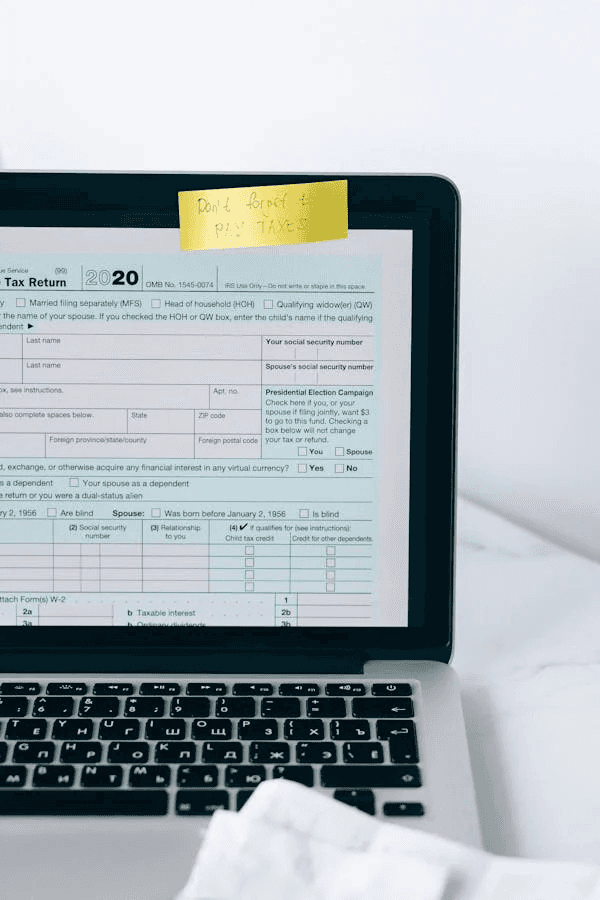Step-by-step Guide on How to File Taxes for Corporate Law Firms for USA Companies

Navigating the intricate maze of corporate taxation requirements can seem discouraging for any enterprise, especially for law practices. In the first quarter of 2024, the Internal Revenue Service processed over 100 million individual tax returns, demonstrating the country's extensive and nuanced revenue collection infrastructure.
As corporate law firms handle elaborate legal and monetary arrangements, recognizing the methodology for submitting tax returns is pivotal for compliance. The following guide offers a thorough, organized technique to assist corporate law practices in gaining command of their tax reporting process.
Step 1: Understand Your Business Structure

The taxation responsibilities of a legal practice are largely determined by its organizational framework. Each business entity in the United States that records a profit in a fiscal year is obligated to submit a corporate income tax declaration.
Whether or not these entities are liable for income tax is a separate matter. For instance, unlike a traditional corporation, a limited liability company (LLC) is not considered a distinct tax entity. Therefore, it is not subject to federal income taxes (although certain states may require LLCs to pay taxes).
The primary categories of corporations mandated to file federal tax declarations are C and S corporations. Both C and S corporations must submit corporate tax declarations to local, state, federal, and potentially international authorities once per fiscal year via corporate tax returns.
Partnerships are also a common type of business structure for corporate law firms in the US. In these legal entities, income is passed through to partners and taxed individually.
Step 2: Collect Essential Documents and Information

Before proceeding with the filing process, gathering all the necessary paperwork is important. This includes:
1. Employer Identification Number (EIN): This unique identifier is essential for tax purposes
2. Previous Year's Financial Records: These documents are crucial for comparison and reference
3. Financial Reports: Profit and loss statements, balance sheets, and cash flow statements are all required
4. Payroll Details: Information on salaries, bonuses, and other forms of employee compensation should be included
5. Receipts for Expenses: Make sure to have documentation for any expenses that can be deducted.
Step 3: Familiarize Yourself with Important Tax Forms

The specific forms needed will fluctuate depending on the structure of your company:
C Corporation: Submitting Form 1120 (US Corporation Income Tax Return).
S Corporation: Submit Form 1120S (US Income Tax Return for an S Corporation).
Partnership: Filing Form 1065 (US Return of Partnership Income) and providing Schedule K-1 to each partner.
Regardless of your company's composition, ensure that you also submit Form 941 (Employer's Quarterly Federal Tax Return) for payroll taxes and Form 940 (Employer's Annual Federal Unemployment (FUTA) Tax Return) for unemployment taxes.
Step 4: Determine Your Taxable Earnings

In the world of corporate law, it is essential for firms to carefully calculate their taxable earnings. This includes the following:
Overall Income: The total sum of all revenue streams.
Deductions: These can include employee salaries, rent, utility bills, office supplies, and any other expenses related to the business.
Depreciation: Firms can claim depreciation on their office equipment and real estate properties
Qualified Business Income (QBI) Deduction: Pass-through entities that meet certain criteria can deduct up to 20% of their QBI.
Step 5: Utilize Tax Credits

Corporate law firms have the opportunity to take advantage of various tax credits that can help lessen their overall tax burden. Some common types of tax credits available are as follows:
Research & Development (R&D) Credit: This credit is available to firms that are investing in cutting-edge legal technologies
Work Opportunity Tax Credit (WOTC): Firms can receive this credit for hiring individuals from specific target groups who may be facing challenges in finding employment
Employer-Provided Childcare Credit: This credit is for firms that offer childcare services or facilities to their employees.
Step 6: Estimate and Pay Quarterly Taxes

To avoid penalties, corporate law firms must estimate and pay quarterly taxes using Form 1120-W or adjust their quarterly payments if the firm's financial situation changes suddenly. Large payments are due on April 15, while smaller amounts are scheduled for June 15, September 15, and December 15. The complex formulas and fluctuating finances require vigilant monitoring to stay compliant.
Step 7: File Annual Tax Returns

Corporate law firms must submit their annual returns by the 15th of the 4th month after the conclusion of their operational year. For calendar year taxpayers, this deadline is usually April 15. If more processing time is needed, firms can petition for an extension using Form 7004.
Step 8: Conform to Demands of State Taxation

In addition to meeting obligations of federal taxation, corporate law firms must also satisfy the requirements of state tax authorities, which have great diversity across locations. Firms should consult the guidance provided by their applicable state tax administration for customized forms and due dates.
States employ various algorithms to determine a company's earnings from business conducted within their borders. It's important to remain educated on the nuances of each state permitting commercial activity and other state-specific points like corporate tax rates, permitted deductions, and deadlines for provisional payments and yearly returns.
Step 9: Take a Look at Local Tax Requirements

Corporate law firms might have to pay taxes to city, county, or regional areas. Local tax authorities usually don't ask for advance tax payments, but reviewing the specific regulations that affect your firm is crucial. The deadlines for local tax filings are typically aligned with state taxes, but it's wise to confirm this before submitting your returns.
Need Help to File Taxes of Your Corporate Law Firm in the US? Contact SamsCashFlow Agency!

Are you struggling to understand the tax requirements of your US corporate law firm? If you want professional assistance, click on the link: https://www.samscashflow.com/#book and call SamsCashFlow agency to get in touch with the experts.